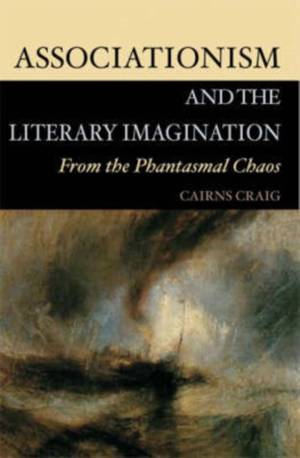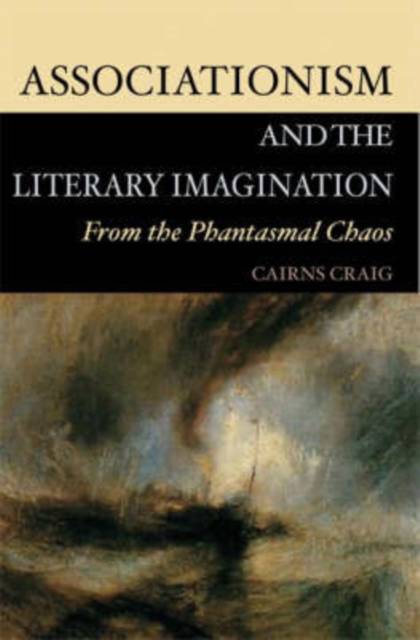
- Retrait gratuit dans votre magasin Club
- 7.000.000 titres dans notre catalogue
- Payer en toute sécurité
- Toujours un magasin près de chez vous
- Retrait gratuit dans votre magasin Club
- 7.000.000 titres dans notre catalogue
- Payer en toute sécurité
- Toujours un magasin près de chez vous
Associationism and the Literary Imagination
From the Phantasmal Chaos
Cairns Craig
Livre relié | Anglais
225,95 €
+ 451 points
Description
Associationism and the Literary Imagination traces the influence of empirical philosophy and associationist psychology on theories of literary creativity and on the experience of reading literature. It runs from David Hume's Treatise of Human Nature in 1739 to the works of major literary critics of the twentieth century, such as I.A. Richards, W.K. Wimsatt and Northrop Frye. Cairns Craig explores the ways in which associationist conceptions of literature gave rise to some of the key transformations in British writing between the romantic and modernist periods. In particular, he analyses the ways in which authors' conceptions of the form of their readers' aesthetic experience led to radical developments in literary style, from the fragmentary narrative of Sterne's Tristram Shandy in 1760 to Virginia Woolf's experiments in the rendering of characters' consciousness in the 1920s; and from Wordsworth's poetic use of autobiography to J.G. Frazer's exploration of a mythic unconscious in The Golden Bough. Detailed analyses are offered of the ways in which a wide variety of major British writers, including Scott, Lady Morgan, Dickens, Tennyson, Hardy, Yeats, Joyce and Woolf developed their literary techniques on the basis of associationist conceptions of the mind, and of how modern literary criticism - from Arthur Symons to Roland Barthes - is founded on associationist principles. Associationism and the Literary Imagination relocates the traditions of British writing since the eighteenth century within the neglected context of its native empirical philosophy, and reveals how many of the issues assumed to be products of 'postmodern' or 'deconstructive' theory have long been foregrounded and debated within the traditions of British empiricism. This is a work which provides a radical new perspective on the history of literature in Britain and Ireland and challenges many of the assumptions of contemporary theoretical debate about the
Spécifications
Parties prenantes
- Auteur(s) :
- Editeur:
Contenu
- Nombre de pages :
- 336
- Langue:
- Anglais
Caractéristiques
- EAN:
- 9780748609123
- Date de parution :
- 19-06-07
- Format:
- Livre relié
- Format numérique:
- Ongenaaid / garenloos gebonden
- Dimensions :
- 160 mm x 236 mm
- Poids :
- 635 g







